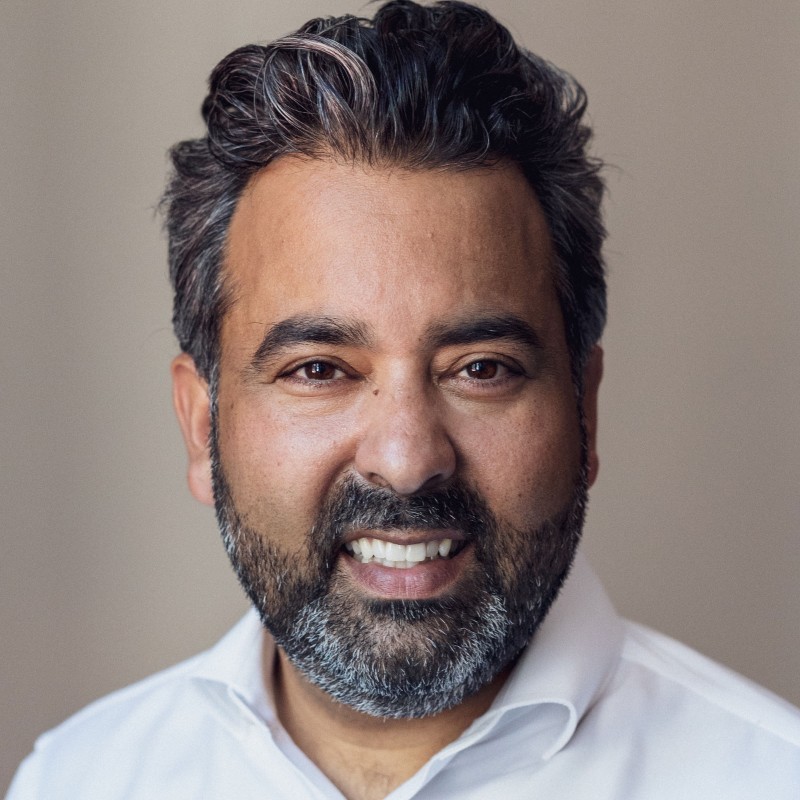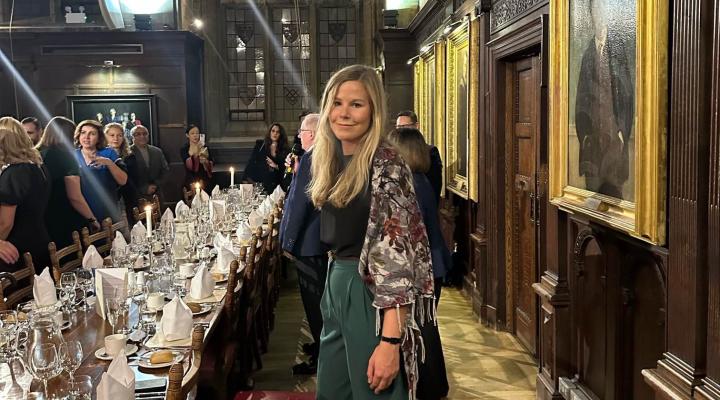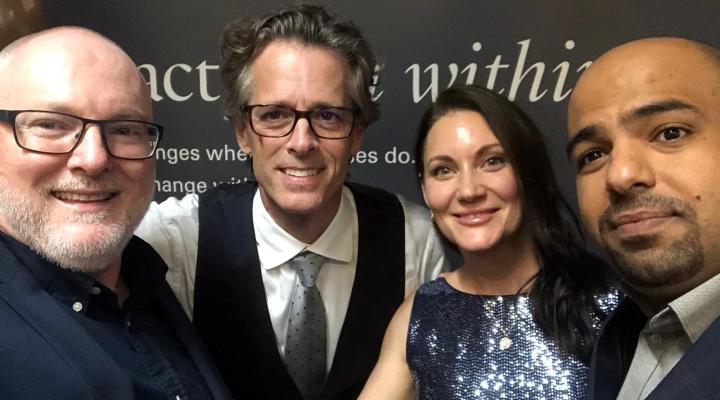I am a priest in the Anglican Church, specialising in the closing of churches. My organisation is the world’s third largest Christian denomination. Alongside generalised post-pandemic pressures, we are also experiencing a once-in-500-year transition in all our operating models. In the work of reconciliation and renewal, the creaking infrastructure of our vast real estate holdings present both a huge challenge, as well as strategic opportunity for impact. This is the challenge-set that led me to Oxford Saïd’s Impact Finance Innovations Programme.
Challenges in context
I came to Oxford, without prior experience in a business school. I hold an MSc in Decolonisation from the London School of Economics and a BMin in Theology from Cambridge/Ridley, however, the experience of studying cases, deal structures and meeting an entire sector of wise leaders, was new. My course was within Saïd Business School's diverse Impact Finance department and quickly I realised: I was not the only leader who had come from a non-traditional business background. We engaged questions around social purpose real estate, impact and blended finance, the UN SDGs, and practical tools of impact investing. We studied de-risking structures, which I learned sat somewhere between grants and conventional investments. As I saw my own challenges in the context of many other wicked social problems, I realised: I had found my people! Because we had all travelled from so many time zones, we also resolved to stay out very late and sing songs together in the piano bar.
Here are three examples of what I learned:
-
Impact-first finance may help solve the world’s complaints about ESG. Publicly listed companies have an imperative to produce financial returns. Pressures on those same companies to behave themselves are fascinating to me, however, I can also see clearly how the problem of green-washing has arisen. Impact-first finance (made with the intention to generate positive, measurable social and environmental impact alongside a financial return) may be an important tool to responding to the world’s questions about what impact finance can truly, measurably achieve.
-
Large charitable foundations are leading the impact investing story. And we met them all, on the course. Whether as guest speakers or classmates, I met leaders from some of the world’s largest charities. These organisations have spent decades solving development challenges in the Global South. Now, they are pushing traditional finance in ways that only the largest endowments can - even the Vatican (arguably, the world’s largest charity) has a new vision document in circulation on this subject. On our programme, we heard not only about deal structures led by these foundations, but also about the back-story and wrestling behind how they came together.
- Governments are listening and investing. As a clergyperson, our organisation remembers the days when religious groups provided much social support. In some cases, the world’s leading hospitals, schools, legal systems, and arts endeavours are the wonderful result. On another view, religious organisations have played a lamentable part in the awful journey of colonisation, doctrines of discovery and other harmful forms of capitalism. Over the past 75 years, the government has taken over where religion once was, yet has become very inefficient. What if impact finance was a leaner, more efficient, and more effective way of financing the world’s best charities, non-profits, and social enterprises? In Canada, a new $755 million Social Finance Fund is emerging. During the programme, I learned from leaders around the world whose own national governments were and are doing the same.
Before…
Prior to the programme, I had the privilege of leading the creation of a new charity aimed at becoming a social finance intermediary. Our idea was to engage the properties in our religious networks and offer them out to local communities, for new ideas in housing, community hubs and more. This has proven to be a successful approach and we have become the leading agency in Canada in this field.
We became famous for putting a major circus company into one of our churches during the week, with faith communities remaining on a Sunday. In another of our projects, those faith communities were three Muslim groups, meeting in one of the oldest churches in Canada’s Bible belt. What we did not have was a place to workshop the new impact or social finance tools that we needed.
…and after
Since my time on the programme, we have launched a new community bond aimed at providing pre-development funds to groups of charities seeking to transition a local property. We have developed an impact-linked interest trigger, which lowers the rate of return to our investors, as we achieve more of the social impacts that they care about. Just last week, we sharpened that model through something I learned from an American municipality, that was presented in one of our alumni events.
Looking ahead, I am honoured to be playing a small teaching role in September’s Social Finance course at Oxford Saïd, where our work will become one of the case studies for the next cohort. We have dreams of larger fund structures, linking with other industry leaders and joining with programmes at Oxford Saïd like the next round of studies looking at faith-based investors.
In conclusion, I want to express my great thanks to Aunnie, Alex, Gayle, Karim, Annabelle and all the amazing faculty and staff at Saïd Business School. I look forward to being an active alumnus, and future student and I give my warm recommendation to you, reader, to consider coming to join us.





